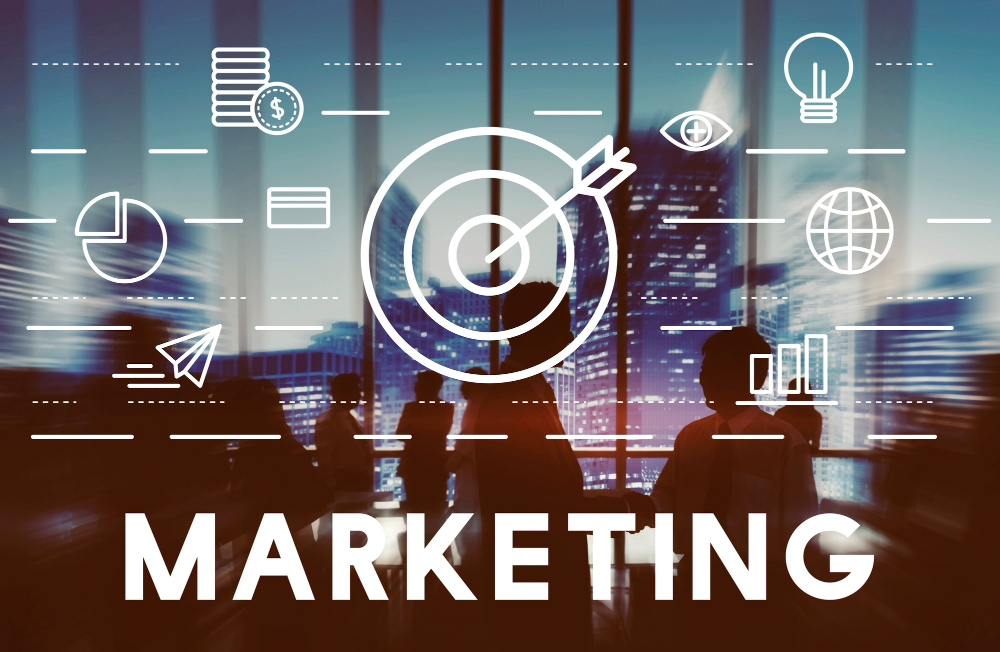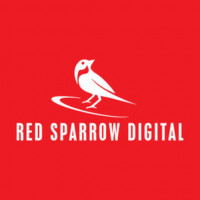The Future of Digital Marketing Agencies: How Agencies Are Evolving in 2025

Strong 8k brings an ultra-HD IPTV experience to your living room and your pocket.
If you’re a business owner, brand builder, or entrepreneur trying to figure out whether you need a marketing agency in today’s digital age, you're not alone. The world of marketing has shifted so dramatically over the past few years that it’s hard to keep up, let alone know whom to trust or how to spend your marketing budget wisely.
Digital marketing agencies aren’t what they used to be, and that’s a good thing. They’re not just creating ads and posting on social media anymore. They’re evolving, becoming smarter, more specialized, and deeply integrated into how businesses grow. If you're looking for such an agency and have a limited budget, consider partnering with a digital marketing agency in Bangladesh.
And if you're wondering what to expect from agencies in 2025 and beyond, here’s a look at some of the ways they’re changing.
AI and Automation Are Doing the Heavy Lifting
If you’ve heard that AI is taking over marketing, you’re not far off. Agencies are now using AI to handle tasks like writing content, segmenting audiences, and even running ads. These tools save a significant amount of time. That time can then be used to focus on strategizing, communicating with clients or brand audiences, handling crises, and more.
AI can help agencies make smarter decisions by analyzing data that humans might overlook. For example, an AI tool can tell an agency which customers are likely to buy soon or which headlines are getting the most clicks. But that doesn’t mean everything becomes robotic. Audiences today are smart enough to pick up on what’s human-written and what isn’t.
The best agencies are finding a balance, using AI for speed and accuracy while keeping human creativity at the heart of campaigns. This balance allows them to complete monotonous tasks quickly while still delivering content that feels natural and interesting.
AI may be progressing at a rapid pace, but it’s still not perfect, especially when it comes to generating content. We’ve all seen the occasional extra finger, unnaturally smooth skin, or strange camera movement. A human touch is still essential to make sure the final output doesn't feel off or alienate the audience.
First-Party Data Is Taking Center Stage
You know those cookie pop-ups that show up on almost every website? You’ll probably start seeing fewer of them. Google had originally planned to get rid of third-party cookies in Chrome, but now they’ve changed course and decided to keep them for the time being. Instead, they’re rolling out a new system that lets users pick how they want to be tracked across Google Search and other products.
What does this mean for your business? Basically, the rules around online privacy are getting stricter. So, agencies can’t depend as much on buying or borrowing data from other sources.
Now, it’s all about collecting data directly from your own audience. Think email signups, feedback surveys, loyalty programs, or even fun quizzes. This kind of information (called first-party or zero-party data) is more trustworthy because people are choosing to share it with you.
Agencies that know how to help brands collect and actually use this kind of data are the ones that will stay ahead. So, if you're looking to hire one, make sure they understand how to gather data through email marketing campaigns, social media activity, direct feedback from your audience, and website tracking.
Omnichannel Marketing Is All About Customer Experience
We’ve all had moments where we see a product on Instagram, then again in an email, and then on a website. That’s omnichannel marketing at work. It’s an alternative way to prevent bombarding people. It makes sure their experience with your brand feels smooth, wherever they are.
In 2025, agencies are putting a huge focus on this customer experience. They’re utilizing various brand messages across channels so that people feel seen, understood, and reached where they’re more active. Voice search, live chat, video, and even offline touchpoints are part of the mix. It’s about being helpful, not just visible.
To pull this off, you don’t have to do everything in-house. You can team up with specialized agencies. For example, a website development company in Bangladesh can help you build a site that’s not just pretty but smart, like adding plugins that notice when someone leaves items in their cart. They can even set up automatic reminder emails to bring those shoppers back and help close the sale.
ROI Is the New Standard
Marketing used to be full of guesses and gut feelings. Not anymore. These days, if you’re spending money on ads or campaigns, you want to see real results. That’s why agencies are moving toward performance-based strategies. They use tools that track everything in real time so you can see what’s working and what’s not.
This is actually great for business owners. You’ll be able to see exactly how many leads came in from a campaign or how much revenue a specific ad generated. Agencies that are good at tracking and reporting this kind of data are becoming the go-to choice, especially for brands that want clear accountability.
As a client, don’t be shy about asking for regular reports. They’ll help you see where your marketing is going and what kind of return you’re getting. Sure, some things like word of mouth are harder to measure, but tools like social media analytics and Google Ads data can still give you a solid picture. You won’t be flying blind anymore.
Specialized Agencies Are Replacing One-Size-Fits-All
Imagine you run a healthcare business. Would you rather hire a general marketing agency or one that knows the ins and outs of healthcare marketing? Most business owners are choosing the second option.
Agencies are getting more focused. Some stick to specific industries like SaaS, fashion, hospitality, or crypto. Others specialize in services like SEO, influencer marketing, or AI-driven website design. The big advantage here is that you’re working with people who already understand your world and know what works.
While full-service agencies offer everything under one roof, it’s still smart to ask what they’re really good at. Most of them have a few core services they truly excel at. In fact, you can even work with a mix of full-service agencies that each bring their top strengths to the table. That way, you get the best of everything without settling for average results.
Influencer Marketing Is Getting Smarter
Influencer marketing's value worldwide was estimated at over 24 billion U.S. dollars in 2024, and for good reason. You might think influencer marketing is just about big names with millions of followers. But today’s trend leans more toward micro and nano influencers. These are people with smaller audiences but higher engagement and stronger community trust.
Agencies are now building long-term relationships with influencers instead of just paying for one-off posts. The goal is to create brand ambassadors rather than getting a single shoutout. Some agencies are even exploring virtual influencers, which might sound unusual, but they help brands stand out with a familiar and consistent presence.
Think about it. When people scroll through social media, they see countless ads. But if a familiar face pops up, especially if it's someone they follow and trust, audiences are more likely to pause. That familiarity builds credibility. Even if someone doesn’t buy right away, seeing the product tied to a trusted face can influence their decision later. Like when they are at the store choosing between similar products, they will likely go with the one they recognize from social media. That sense of recognition makes the product feel more dependable.
Another plus is that influencer content often works well as user-generated content. Brands can share these authentic reviews, tutorials, or product demos on their own pages. That kind of real, relatable content stands out in a feed full of polished ads. And in a time when social media often feels fake or overly edited, people are hungry for authenticity. Influencer marketing taps into that and gives audiences something they can actually connect with.
Interactive and Immersive Content Is on the Rise
The lines between reality and digital are starting to blur. Some brands are already experimenting with the metaverse. Many have implemented AR into their business to let people try on clothes or see how a piece of furniture would look in their homes.
Agencies are exploring these tools not just for novelty but because they work. People are spending more time engaging with brands that offer these experiences. Whether it’s a virtual pop-up store or a gamified product launch, interactive content helps brands stand out, and agencies are getting really good at building it.
Agencies Are Becoming More Flexible with White-Label and On-Demand Services
Not every business wants or needs a full-service agency on a retainer. That’s why agencies are moving toward more flexible models. Need someone to manage your Google Ads for three months? Or create content on demand without hiring a whole team? That’s all possible now.
White-label services also let agencies offer more than what’s in-house. For example, a social media agency might partner with a white-label SEO provider to provide both services to clients without building a whole new team. This kind of scalability keeps costs down and quality high.
Do You Really Need a Marketing Agency in 2025?
If you’ve been on the fence, ask yourself this. Do you have the time, tools, and expertise to manage ever-changing platforms, data laws, AI tools, influencer strategies, and customer expectations while running your business? The right agency can act as a partner to help you grow faster, smarter, and with fewer mistakes along the way. It doesn't matter if you’re looking for niche expertise, measurable results, or support navigating new tech; agencies are adapting to fit what modern brands need.
Agencies that embrace change, invest in technology, and focus on real value are leading the charge. And for businesses, that means better support, smarter campaigns, and a clearer path to growth. If you’ve been waiting for the right time to explore agency support, 2025 might just be it. The tools are smarter, the strategies are sharper, and the opportunity to connect with customers in meaningful ways has never been greater.
Note: IndiBlogHub features both user-submitted and editorial content. We do not verify third-party contributions. Read our Disclaimer and Privacy Policyfor details.


